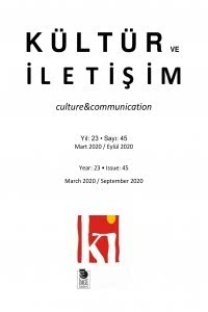Çinlilik ve MTV
Bu çalışmada bugün Çin'de pek çok bağımsız müzik yapımcısı, devlet radyo ve televizyonları tarafından ısrarla dışarıda bırakılırken, Çinli pop şarkıcısı Gao Feng'in ulusal resmi yayın yetkilileri tarafından neden ilgiyle karşılandığını ve politik olarak kabul edilebilir bulunduğunu ele almaktadır. Gao Feng'in bir şarkısı ve video klibi, Amerikan pop müziğinin özgün bir formundan esinlenen ve devletçe de tercih edilen bir müzikal modele ışık tutmak için incelenmiştir. Bu form, "kırma", "hibrid" ve "etnik olarak belirsiz" olduğu varsayılan rock, soul ve blues gibi müzikal biçimlerle karşılaştırıldığında "temiz", "beyaz" ve "etnik olarak sorunsuz"dur. Bu çözümleme, Gao Feng'in kabul görüşünün, sadece devletin milliyetçi ideolojisi ile ilgili bir mesele olduğunu değil; karlı çıkanların Çin sınırları içindeki nüfusun küçük bir bölümünü oluşturduğu yeni bir ekonomik düzenin parçası olduğu gerçeğini de ortaya çıkartmaktadır.
Chineseness and MTV
This article addresses the question why a Chinese pop-singer, Gao Feng, has been enthusiastically received by the national official broadcast authorities as politically acceptable while most independent popular music makers in contemporary China have been consistently excluded from the state radio and television. One of the songs by Gao Feng and its video is analyzed to shed light on the state's preferred musical model which is rooted in a particular form of American pop-music. This form is described as "clean." "white," and "ethnically unproblematic" a supposed to the musical forms like rock, soul, and blues which are considered to be "miscegenated," "hybrid," and "ethnically unclear." The analysis reveals the fact that Gao Feng's acceptance should not be understood only as a matter of state's nationalistic ideology but as part ofa new economic order whose beneficiaries can only ever be a minority of the people's existing within China's border.
Keywords:
Chinese pop-singer, Gao Feng, China contemporary China,
___
- Lee, Gregory B. (1995). "The East is Red' Goes pop? Commodification Hybridity and Nationalism in Chinese Popular Song and lts Televisiual Performance, Popular Music 14 (1).
- Lee, Gregory B. (1996). Traubadours, Trumpeters, Troubled Makers: Lyricism, Nationalism and Hybridity in China and its Others. Durham, N.C.: Duke University Press. London: C. Hirst &Co.
- Falkenhausen, Lothar V. (1993). Suspended Music: Chime BelIs in the Culture of Bronze Age China, Berkeley and Los Angeles: University of California Press.
- Balibar, Etienne (1997). La Crainte des Messes: Politique et Philosophie Avant et Apres Marx. Paris: Galilee. 429-430.
- ISSN: 1301-7241
- Yayın Aralığı: Yılda 2 Sayı
- Başlangıç: 1998
- Yayıncı: İmge Kitabevi Yayınları
Sayıdaki Diğer Makaleler
Yayıncılık Eğitimi Türk ve Amerikalı Yayıncılık Öğrencileri Arasında Karşılaştırmalı Bir Çalışma
Gerbner'in Ekme Tezi ve Anlattığı Öyküler Üzerine Bir Değerlendirme
Türkiye' de İletişim Eğitimi Üzerine Öneriler
Önemli Bir Dönemece Yaklaşırken: ki Bir Yılını Dolduruyor
Kültürün Metalaşmasında Genel Eğilimler
Mahremin Müzakereye Çağrılması ve Yıldo Örneği: Mahrem Alandan Pop-Mahrem Alana
F.mutlu BİNARK, Peyami ÇELİKCAN
